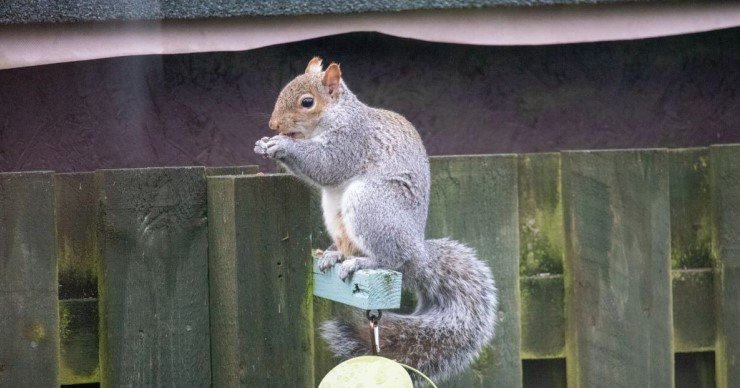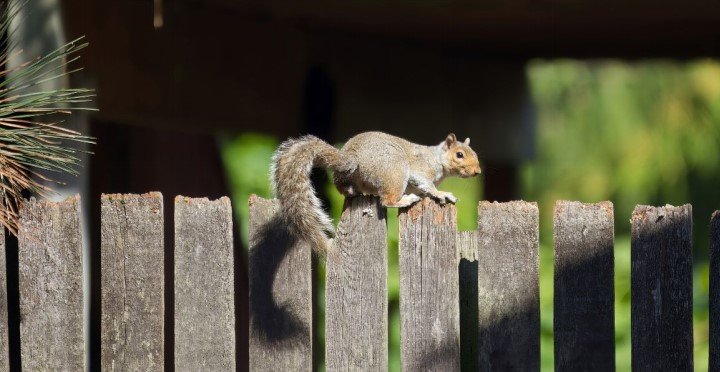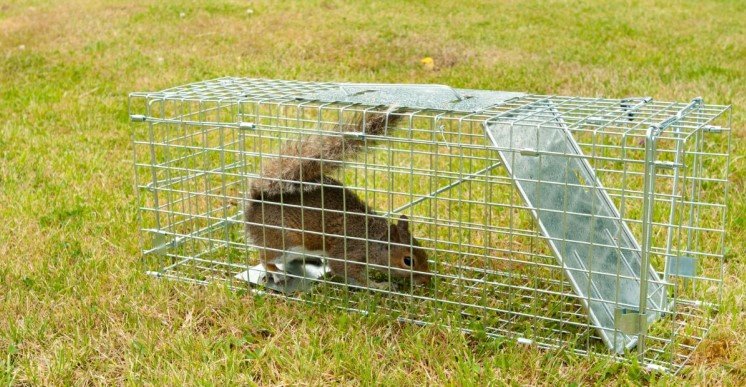
Do Squirrels Chew Wooden Furniture? Understanding Their Behavior and Impact on Your Home
Squirrels are known for their playful antics, but you might wonder if their curiosity leads them to chew on your wooden furniture. Yes, squirrels can chew wooden furniture, primarily when they need to gnaw or when they’re looking for new sources of nesting material. Their teeth grow continuously, prompting them to chew on various materials, including wood, to keep their teeth from becoming overgrown.
If you have experienced the frustration of finding chew marks on your furniture, knowing that squirrels may be the culprit can help you take preventive measures. Understanding their behavior is key to protecting your home from potential damage. Ensuring your living space is squirrel-proofed can minimize the chance of these pesky rodents turning your furniture into their snack.
Understanding Squirrel Behavior
Squirrels chew for various reasons, which can impact your wooden furniture. Recognizing these behaviors will help you take appropriate measures to protect your belongings.
Reasons Why Squirrels Chew on Wood Furniture
Squirrels instinctively gnaw on wood to maintain their teeth. Their incisors grow continuously, necessitating regular wear to prevent overgrowth. Chewing on wooden furniture provides them with the necessary action to keep their dental health in check.
In areas like Richardson, squirrels may also chew on furniture to create nests or find food. They frequently strip the bark off branches and may mistakenly view your furniture as a source of nesting material. If left unchecked, this behavior can lead to damage.
To prevent this, consider squirrel-proofing your wooden furniture. Use protective coatings or barriers to deter them. Employing these strategies can help safeguard your possessions from curious squirrels.
Protective Measures for Wooden Furniture

A combination of protective strategies can be implemented to safeguard your wooden furniture from potential squirrel damage. You can take proactive steps to keep squirrels at bay while preserving your furniture’s appearance and integrity. If these fail, you must consider seeking the help of professional wildlife control experts.
Furniture Protection from Squirrel Damage
To protect wooden furniture, start by using repellents. You can apply commercial squirrel repellents or homemade hot pepper or vinegar mixtures. These products deter squirrels without harming them.
Covering furniture can also be effective. When the furniture is not in use, use protective covers or cloths. This barrier can help prevent squirrels from accessing the wood.
Regular inspections play a key role. Check for signs of damage or chewing periodically. Spotting issues early allows for immediate action, reducing the risk of extensive damage.
Squirrel-Proofing Strategies
Implement physical barriers to enhance your protection. Consider installing metal shields on furniture legs. This prevents squirrels from gnawing on vulnerable spots.
In addition, maintain a clean outdoor space. Remove debris, food sources, and nesting materials that attract squirrels nearby. Encourage natural predators like birds of prey in your area, as they help control the squirrel population.
If you have outdoor wooden furniture, storing it indoors during off-seasons shields it from nutritional chewing. A consistent routine of upkeep will strengthen your defenses against squirrel activity, ensuring the longevity of your wooden pieces.
Read also: Squirrels Chew Wooden Furniture
Effective Solutions and Prevention

Implement several effective strategies to protect your wooden furniture from squirrels. Understanding their behavior and applying specific prevention methods can help minimize the risk of damage.
How to Stop Squirrels from Chewing Furniture
To stop squirrels from chewing furniture, consider using physical barriers. For example:
Cover furniture with protective sheets when not in use.
Utilize squirrel-proof repellents that contain strong scents, such as pepper spray or citrus, which squirrels dislike.
Regularly inspect your outdoor furniture for signs of squirrel activity. If you notice chewing, clean the area and apply deterrents immediately.
If you’re dealing with persistent issues in Richardson, professional help can be beneficial. Companies like Critter Stop specialize in humane wildlife removal and can provide tailored solutions to effectively keep squirrels away. Call Critter Stop at (214) 234-2616 for a free inspection.
Preventing Squirrels from Damaging Wood Furniture
Preventing squirrels from damaging wood furniture starts with creating an uninviting environment. Here are some practical steps:
Seal entry points in your home to reduce access to indoor furniture.
Trim trees and shrubs that provide easy access to your patio or deck.
Consider placing caps on fences and using squirrel baffles in gardens to divert their paths.
Keeping your environment clean by removing food sources will also help. Store birdseed and pet food in sealed containers to minimize attraction.
If challenges persist, contact Critter Stop; they have a fantastic reputation and customer reviews online because they provide high-quality work and great customer service.




